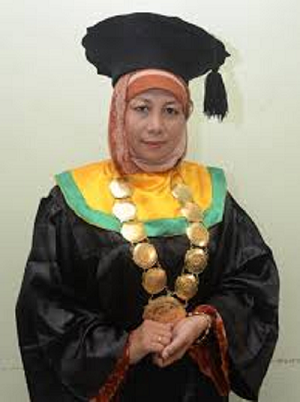Pengalihan Hak Hadhanah Jatuh kepada Bapak terhadap Anak Belum Mumayyiz (Studi Kasus di Pengadilan Agama Palangka Raya)
Transfer of Hadhanah's Right to Fall to Father Against Children Not Mumayyiz (Case Study in Palangka Raya Religious Court)
DOI:
https://doi.org/10.33084/anterior.v18i2.808Keywords:
Rights, Hadhanah, MumayyizAbstract
As a result of divorce, other problems also arise as a result of being granted divorce claims, both the issue of joint assets to the problem of who is more entitled to do hadhanah (maintenance) of children. In Compilation of Islamic Law Article 105 letter (a) states that in the event of divorce, the maintenance of a child who has not been mumayyiz or has not been 12 (twelve) years old is the right of his mother, then, in Article 156 letter (a) due to the termination of marriage child who hasn't mumayyiz entitled to hadhanah from his mother. The method in this dissertation research uses the type of legal research empiric research that takes place in the field, with the approach of legislation (statute approach), conceptual approach (conceptual approach), and approach (prophetic) prophetic approach is an approach with basis instrument sourced texts from the revelations received by prophets and apostles and the Sunnah. The first research problem was why Hadhanah's rights fell to the father of children who were not yet mumayyiz and the second was how the Judge's policy in deciding on hadhanah cases in the Palangka Raya Religious Court Number 0067/Pdt.G/2018/PA Plk.
Downloads
References
Arkisman, A. & Hadi, I. 2018. Aspek Yuridis Hak Asuh Anak Akibat Perceraian Orang Tua berdasarkan Undang-Undang Perkawinan dan Undang-Undang Perlindungan Anak (Studi Kasus Perkara No. 098/Pdt.G/2017/PA.Gs). Jurnal Pro Hukum: Jurnal Penelitian Bidang Hukum Universitas Gresik, 7, 1-15.
Azizah, L. 2012. Analisis Perceraian dalam Kompilasi Hukum Islam. Al-'Adalah, 10, 415-422.
Daradjat, Z. 1995. Ilmu Fiqih. Yogyakarta: Dana Bakti Wakaf.
Manan, A. 2008. Penerapan Hukum Acara Perdata di Lingkungan Peradilan Agama. Jakarta: Kencana.
Matondang, A. 2014. Faktor-Faktor yang Mengakibatkan Perceraian dalam Perkawinan. JPPUMA: Jurnal Ilmu Pemerintahan dan Sosial Politik UMA (Journal of Governance and Political Social UMA), 2, 141-150.
Nuroniyah, Wardah, & Wasman. 2011. Hukum Perkawinan Islam di Indonesia: Perbandingan Fiqh dan Hukum Positif. Yogyakarta: Teras.
Rozalinda, R. & Nurhasanah, N. 2014. Persepsi Perempuan Tentang Perceraian di Kota Padang. Miqot: Jurnal Ilmu-ilmu Keislaman, 38, 395-416.
Simorangkir, J.C.T., Erwin, T.R., & Prasetyo, J.T. 2004. Kamus Hukum. Jakarta: Sinar Grafika.
Siregar, R.E.A.A. 2014. Studi Tentang Peradilan Sesat (Rechterlijke Dwaling) dan Hubungannya dengan Memudarnya Kepercayaan Masyarakat terhadap Hukum. Fitrah: Jurnal Kajian Ilmu-Ilmu Keislaman, 8, 17-30.

Downloads
Published
How to Cite
Issue
Section
License
All rights reserved. This publication may be reproduced, stored in a retrieval system, or transmitted in any form or by any means, electronic, mechanical, photocopying, recording.












